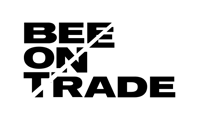If you are importing automobiles into the United States, you should be aware of these requirements from the EPA, the DOT, and the USDA
Environmental Protection Association (EPA) The EPA is concerned with the environmental impact of imported vehicles. Therefore, they have established regulations that ensure that imported vehicles meet the same emission standards as those manufactured and sold in the United States.
To import a vehicle, you must ensure that the vehicle meets all EPA standards, and you must file the appropriate paperwork with the EPA. If the vehicle does not meet EPA standards, you may be required to have it modified before it can be imported.
Department of Transportation (DOT) The DOT is responsible for ensuring that all imported vehicles meet safety standards and that they are equipped with the necessary safety features. These standards include requirements for headlights, taillights, turn signals, and other safety features.
To import a vehicle, you must ensure that the vehicle meets all DOT standards, and you must file the appropriate paperwork with the DOT. If the vehicle does not meet DOT standards, you may be required to have it modified before it can be imported.
U.S. Department of Agriculture (USDA) The USDA has regulations for the importation of certain types of vehicles that are used for agricultural purposes. These vehicles are subject to additional inspection and certification requirements, and you must file the appropriate paperwork with the USDA to import them.
U.S. Customs In addition to the regulations from the EPA, DOT, and USDA, you must also comply with U.S. Customs regulations when importing a vehicle. This includes paying any applicable duties and taxes and filing the appropriate paperwork with U.S. Customs.
Failure to comply with these regulations can result in delays, fines, or even the seizure of your vehicle. Therefore, it is important to ensure that you fully understand all the regulatory requirements when importing a vehicle into the United States.
What does the DOT Require?
The DOT's National Highway Traffic Safety Administration (NHTSA) sets safety standards for vehicles in the U.S. Vehicles must comply with these standards before they can be imported.
If a vehicle is not eligible for importation because it does not comply with these standards, it may be possible to import it through an independent commercial importer (ICI). Note that modifications to vehicles by ICIs can be costly in terms of time and money since the ICI is required to hold the vehicle for 15 days before it can be released by Customs.
Further details on NHTSA requirements for vehicles can be found here:
http://www.nhtsa.gov/cars/rules/import/
What does the USDA Require?
The USDA's Animal and Plant Health Inspection Service (APHIS) has regulations for the importation of vehicles to prevent the introduction of harmful pests and diseases. If a vehicle has been previously used outside of the U.S., it may need to be fumigated or treated before it can be imported.
Further details on APHIS requirements for vehicles can be found here:
http://www.aphis.usda.gov/import_export/plants/plant_imports/plant_import_requirements.shtml
If you are importing a vehicle that has been used outside of the United States, it may have been infested with pests or diseases. To prevent the spread of these pests and diseases, the USDA requires that all vehicles be treated by a USDA-approved method before they can be imported. This is typically done through the use of a fumigation treatment.
Further details on USDA requirements for vehicle imports can be found here:
https://www.aphis.usda.gov/import_export/plants/manuals/domestic/downloads/ppq_524.pdf
Remember that you will also need to pay customs duties and taxes on the value of any goods that you import in your car, in addition to the duties and taxes on the value of the vehicle itself.
The process of importing a car can be complex, so it is important to make sure that you are fully aware of all the requirements and regulations that apply to your specific situation. You may want to consider working with a licensed customs broker or another import specialist to ensure that you can successfully navigate the process and avoid any delays or complications.
